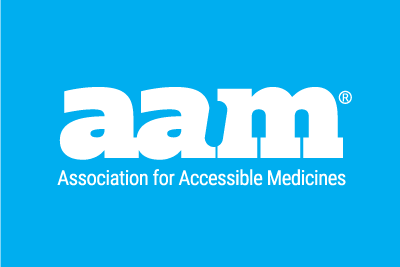Excerpts of Chester "Chip" Davis, Jr.'s Remarks
WHITE OAK, MD (JULY 18, 2017) – Chester “Chip” Davis, Jr. CEO of the Association for Accessible Medicines, today testified before a panel of FDA officials considering the Hatch Waxman Amendments, specifically how to ensure the intended balance between innovation and access.
On the Challenges Facing the Generic Industry:
“But our side of the pharmaceutical ecosystem faces significant and unique pressures that distinguish it from the monopolized branded sector. Generic companies face significant consolidation in the wholesale and retail markets for generics, widescale annual price deflation, frequent supply fluctuations, higher ingredient costs, and increasing regulatory burdens, not to mention the barriers to entry erected by branded companies to forestall competition. Each of these factors impacts generic market entry decisions. But they are particularly acute in low-volume markets.”
On the Hatch-Waxman Imbalance:
“While the innovation side of the Hatch-Waxman equilibrium has for decades seen an exponential series of incentives for drug development, the access/generic side has not received the attention that was warranted. When you combine that with the market realities of the day, it reinforces why this Hearing, and the Commissioner’s Competition Action Plan, are so important."
On Anticompetitive Abuses by Branded Manufacturers:
“Congress established the REMS authority in 2007 to give FDA a new tool to further assure the safety of drugs. At the time, Congress knew there was the potential for this tool to be gamed, and outright abused, by branded manufacturers to extend monopolies and delay robust generic competition. Congress therefore, specifically prohibited this practice. Today’s well-intentioned, but widely abused, system defies Congressional intent.
“It is abundantly clear that the refusal to provide samples is about one thing and one thing only – preventing competition. In 2012, the Senate passed legislation that would have ended such abuses, but successful lobbying by the branded industry prevented enactment.”
On the Limits of FDA Authority to Prevent Anticompetitive Abuses:
“But there is a limit to what FDA can do on its own. Congress should also take immediate action by passing the CREATES Act and the FAST Generics Act, bipartisan legislation in the House and Senate, to prevent the misuse of REMS and restricted distribution schemes to delay generic drug competition.
"The cost of failure is significant, and will only encourage anti-competitive practices to grow. A recent study estimated that the potential market for products subject to REMS or restricted distribution was worth more than $20 billion.”
Learn more about REMS and Anticompetitive Abuses.



